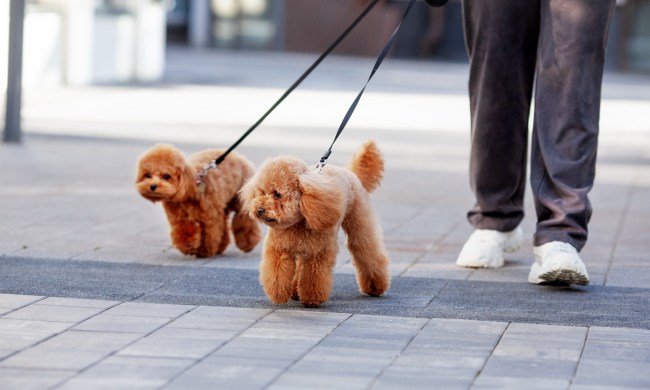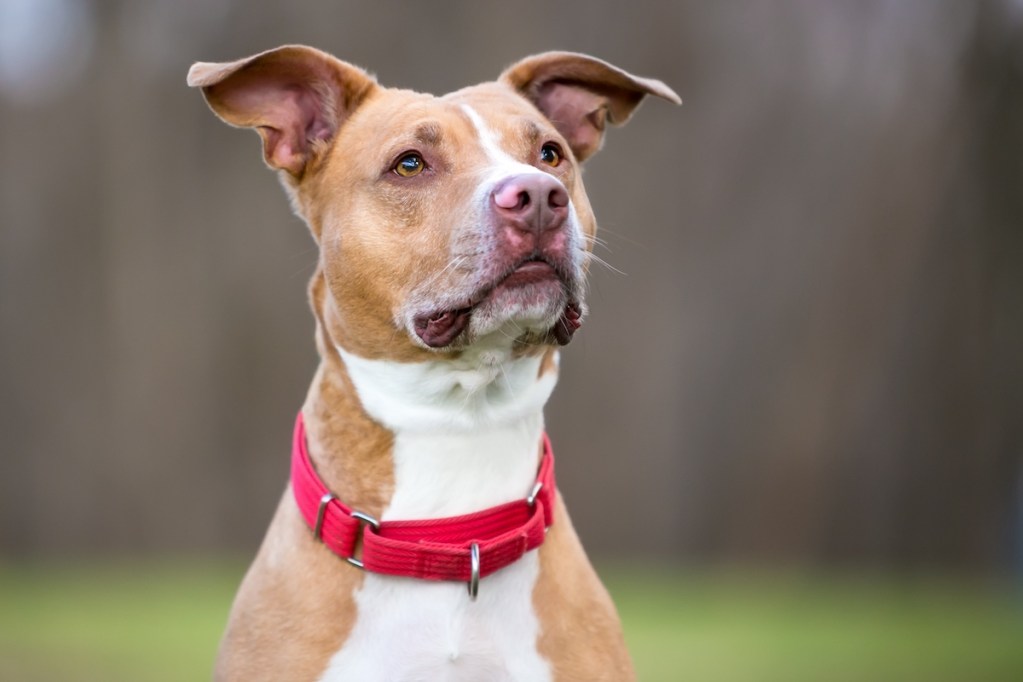
When you and you dog are out and about, your dog’s collar is an important part of keeping them safe. It holds their tags, which has vital info that can help you reunite if your dog gets lost, is a convenient place to hold onto if the leash breaks, and it lets other people know that your dog isn’t a stray if they get lost.
However, some dog owners take their dog’s collar off while they’re at home. For some, this sounds like the perfect opportunity to give their dog some time to relax. For others, this might sound like a safety hazard. So which is the truth?
Is it better to leave your dog’s collar on or should you take it off and allow them to have a breather? Do dogs like collars, or are they a nuisance? Here’s what you need to know.
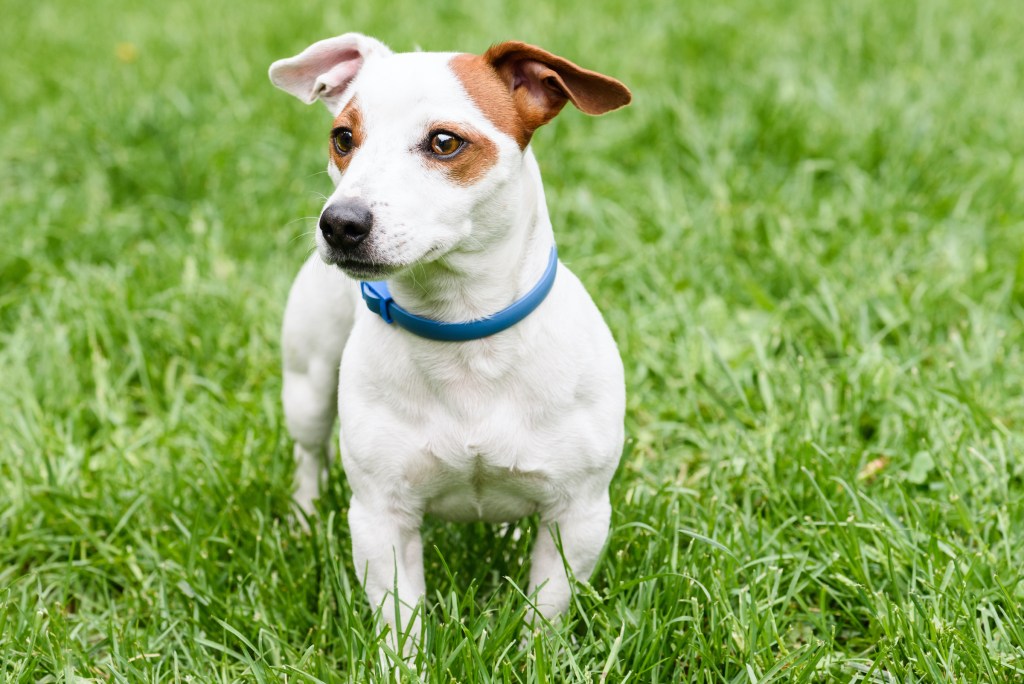
Do dogs like it when you take their collars off?
Every dog is different, which means each one reacts differently to wearing a collar. Experts say their response depends on a variety of factors:
- What happens after you remove the collar? There may be a flurry of excitement when you remove your pup’s collar if something desirable — such as playtime with other dogs — follows immediately after its removal. Likewise, they may resist having his collar removed if something undesirable happens, such as going into his crate before you leave the house.
- How the collar fits. If your dog’s collar is too tight, it may have irritated the skin and be a painful area for you to touch. If it’s too big, it might get caught on objects easily, which can create panic and anxiety.
- Skin and neck sensitivities. If your dog has skin allergies, the collar may be aggravating them. Additionally, if your dog has an injury on their neck — like a cut or muscle strain — they may not appreciate having anyone touch their neck.
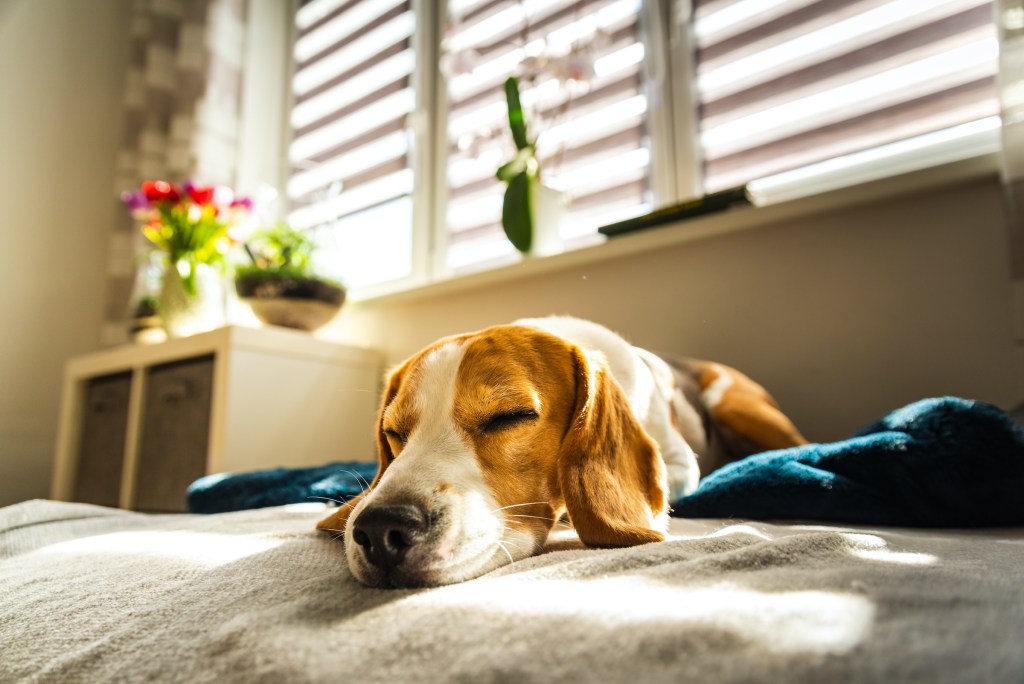
When should you remove your dog’s collar?
Accidents happen and pets get lost, which is why it’s advisable to keep your dog’s collar on whenever possible, especially when you’re walking him on a leash, moving households, or traveling. Still, there are times when it’s perfectly acceptable (and safe) to remove your dog’s collar:
- When your dog is in their crate. Even the best-fitting collars can become choking hazards when identification tags catch on the bars of a crate. It’s also possible for your dog to get their leg caught in the collar when they’re scratching their neck, which can result in a fracture or other leg injury.
- At bedtime. Removing your dog’s collar after the day’s last potty break can give the fur and skin beneath their collar a welcome breather. If your dog moves around frequently at night or scratches and shakes their head a lot, removing their collar might make nighttime quieter for the human members of the household. (Keep the collar on if your dog has access to a doggy door.)
- When they’re playing with other dogs. Dogs are rambunctious when they play with each other. Whenever possible, let them enjoy their romp (in an enclosed, supervised area) without their collar, which will help minimize the risk that it will accidentally catch on another dog’s collar or limb. Every play area is different, so be sure to note the rules. Many pet-sitting facilities remove dog collars during group play; some dog parks require that your dog wear their collar and ID tags at all times.
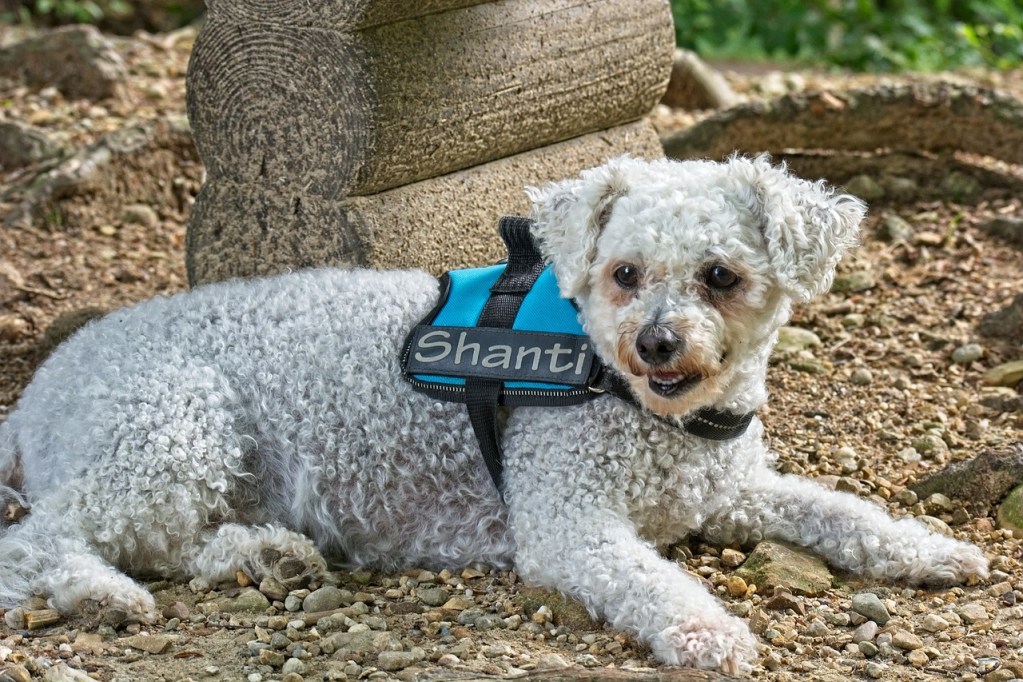
Should your dog wear a collar and a harness at the same time?
A harness isn’t a complete replacement for a collar, so it’s important for your dog to keep their collar on, even if you use a harness to walk them. Harnesses are great for keeping pressure off your dog’s neck if they pull, extra control on walks, and can even keep your dog calmer or warmer. However, they don’t typically have a place to attach your dog’s tags. This means that if your dog gets lost while wearing only their harness, whoever finds your dog won’t know how to contact you!
After the walk is over, though, there’s no reason for your dog to wear both the harness and collar. Harnesses are more restrictive than collars, so your dog may experience more discomfort trying to sleep in them.
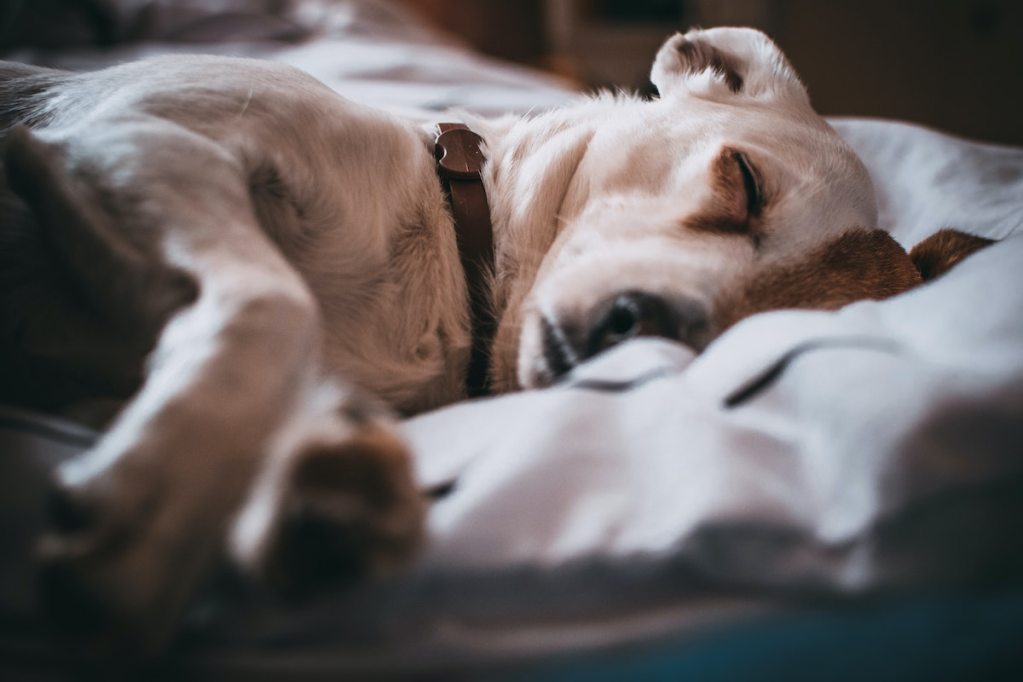
Let common sense guide you
Without question, a collar is the most logical place to attach your dog’s identification tags. It’s also the first place someone will look if, heaven forbid, your dog gets lost. And, provided you don’t use a harness when you go for a walk, a collar is the best place to attach a leash.
Besides collaring your dog, experts say, you can keep your dog safe by making sure they get enough exercise and mental stimulation, securing cabinets and other areas in which you keep toxic materials, supervising them when they’re outside, and putting decals on your windows that alert emergency personnel that you have pets.
All things considered, does your dog need to wear their collar at night? Probably not, especially if your dog is secured inside your home with no unsupervised access to the yard through a doggy door; however, every situation is different. The key is to consider your dog’s behavior and your lifestyle to create the safest possible environment for your pet.


